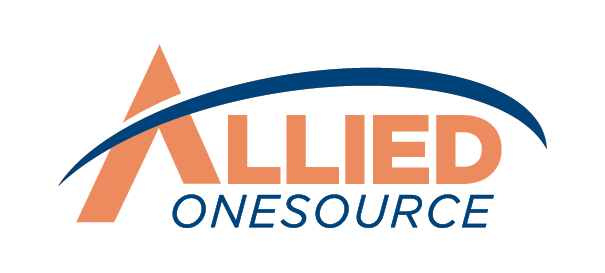Navigating Career Transitions: Strategies for Successfully Changing Jobs
Due to the constant advancement of technology and the ever-changing trend in the world of work, various roles and job paths have opened in almost every industry. As a response, most people find themselves wanting to explore these new opportunities available to them.
Switching careers isn’t unheard of. In fact, the average person will switch roles every 2 to 4 years.¹ But how can a person successfully shift jobs? How can you, a professional, ensure a smooth transition between your current role and your dream position?
The answer is simple: do it one step at a time while considering these tried-and-tested strategies for successful career transitions.
Finalizing the Decision
Before you go on a job search, you need to first be sure of the career decision you want to make. Shifting careers isn't something you do daily so you need to finalize your decision before planning your next steps.
Dedicate Time for Self-Reflection
Given the fast-paced environment you're in, you might feel pressured to decide quickly and act on your decision. Remember that a career change is a big shift so take the time to pause and reflect on the journey you want.
What are your short-term and long-term goals? What are the values you uphold? These are important questions to answer to be sure of the decision you're planning to make.
Identify What Makes You Happy
Once you're certain of changing jobs, you need to know what role you want to shift to. Consider your interests. What tasks make you happy? Which part of your everyday work life do you look forward to the most?
Knowing what activities bring you fulfillment can help you narrow down the possible roles you can shift to. Remember, the happier you are with your work, the fewer chances you'll feel unmotivated to perform. It will also prevent you from having any regrets about changing jobs.
Choose Your Desired Role
Based on what makes you happy, make a list of possible careers you can transition to. It doesn't matter whether all items are related or not. What's important is that you have a variety of options you can consider.
It’s also crucial to do research when curating your list. Explore different industries and roles that you think align with your interests and goals. When your list is finished, take the time to narrow down your options until you have one desired position.
Planning Your Path
Changing jobs isn't an easy feat. It can be nerve-racking and overwhelming, especially when you’re unprepared. To make your transition smoother, plan your career path through these three steps:
Know Your Strengths and Weaknesses
When you've decided on the role you want, it's time to prepare yourself for the career transition you have in mind. Put yourself in recruiters’ shoes - are you a qualified candidate for the role you want?
Identify your strengths and weaknesses based on the job’s skill requirements. Which soft skills and hard skills will aid you in performing the job well? Do you have any weaknesses that will affect your performance once you’re hired?
Work on Closing Gaps in Skills and Knowledge
When you're done analyzing your strengths and weaknesses, focus on the latter. Make it a basis for improving yourself when prepping for your new dream role.
Consider searching for training opportunities and seminars online that specifically address the skill sets and knowledge you lack. For example, you’re an expert in programming but have little knowledge about designing an application's interface. Focus on improving your current talent, widening your mastery, and closing any gaps that are present.
Read More: The Power of Continuous Learning: Invest in Your Professional Growth
Reach Out to People
Sometimes, learning in a group setting is not enough. This is why it’s important to reach out to people who can help you learn more about the job you're aiming for. This helps you further plan your path to success.
You can consider looking for mentors that can provide guidance during crucial parts of your journey. If you don't have the resources for this, you can also consider shadowing professionals. Being able to observe the work of people who have the position you're aiming for can give you a clear idea of the duties you’ll be responsible for.
Tying Up Loose Ends
Before you can transition to the job you want, it’s vital to end your current responsibilities on a good note. Avoid leaving any loose ends to ensure smooth and well-mannered career transitions.
Ensure a Professional Exit
It’s important to resign from your current job in a professional manner to maintain your reputation. You can’t just block everyone from the organization and hope they won't find a way to contact you ever again.
Instead, send a formal letter to your employer about your intent to leave. Show courtesy and respect by giving them two weeks' notice to let them adjust accordingly. During these two weeks, complete tasks and projects assigned to you as you normally would. Responsibly fulfill your duties until the very end.
Be Willing to Help the Company Transition
Remember that you’re not the only one affected by your choice to shift careers. Sympathize with your employers and co-workers by providing your assistance when needed.
Whether you need to briefly train other professionals or you were asked to film detailed tutorial videos, dedicate time and effort to ensure a smooth transfer of your responsibilities to others.
Leave on a Good Note
The best way to maintain professional relationships is to leave the company on a good note. This includes showing appreciation for the experiences you've gained and the people you've met.
This is also important to remember during your exit interviews. Even if you have negative comments to share, frame them constructively. Better yet, focus on positive points to maintain a good reputation.
Read More: Understanding the Value You’re Adding to the Company
Starting Your New Role
Now that you were able to leave your previous job and secure your dream role. Here are a few strategies to keep in mind at the start of your new career.
Set Realistic Expectations
Remember that you now have a new set of responsibilities and tasks. Even if you shifted to a job in the same industry, understand that there are still new learnings to be made.
Set realistic expectations for yourself by considering that you’re new to the job. Even someone with a decade of experience in accounting isn't expected to be an expert on their first day in finance. Cut yourself some slack and focus on building steady and continuous improvement.
Remain Resilient
Naturally, you have to learn about your role and master the skills needed for it. You'll also encounter unfamiliar terms and experience new struggles that come with the job title.
Despite all of the challenges, you need to remain resilient. Adopt a growth mindset as it can help you navigate the struggles you'll encounter. Strive to continue learning even under constant pressure.
Read More: Managing Stress in the Workplace: Tips for Employees to Find Balance and Resilience
Take Ownership of Your Career
At the end of the day, you’re responsible for your decisions. Your success in your new career path depends entirely on your choices and dedication.
Ownership goes two ways. Take or give credit where it is due. Be accountable for any areas that need to be improved. Actively choose to improve and develop yourself based on the career path you've taken.
Read More: Career Mistakes to Avoid
FIND YOUR NEXT JOB OPPORTUNITY WITH ALLIED ONESOURCE
As one of the oldest and most experienced staffing and recruiting companies in the country, Allied OneSource can provide you with the opportunity you've been looking for. Whether you ‘re looking to transition to a job in the same industry or to a different one altogether, we can connect you to outstanding employers in need of your dream role.
With us, you always come first. Reach out today to start a conversation about your future!
Reference
1 Madgavkar, Anu, et al. "Human Capital at Work: The Value of Experience." McKinsey & Company, 2 Jul. 2022, https://www.mckinsey.com/capabilities/people-and-organizational-performance/our-insights/human-capital-at-work-the-value-of-experience. Accessed 19 Jul. 2023.











